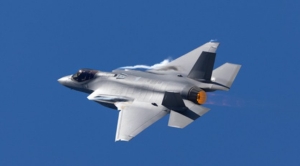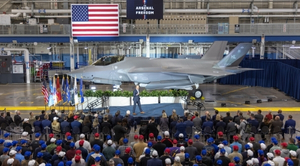News
Lightning Force: F-35B Pilots Bring Fifth-Gen Power to the Indo-Pacific
October 17, 2025
What the F-35 offers that 4th Gen cannot.
Article by the Royal Air Force
When the UK’s F-35B Lightning jets launched on Operation Highmast in April, they carried more than weapons and fuel. They carried a vision of how fifth-generation technology can change the way wars are fought. Six months on with the Carrier Strike Group, the aircraft have flown from the Mediterranean to the Middle East and deep into the Indo-Pacific, landing on allied decks and regional runways along the way.
For the pilots at the controls, it has been a chance to prove what this aircraft can really do on operations far from home.
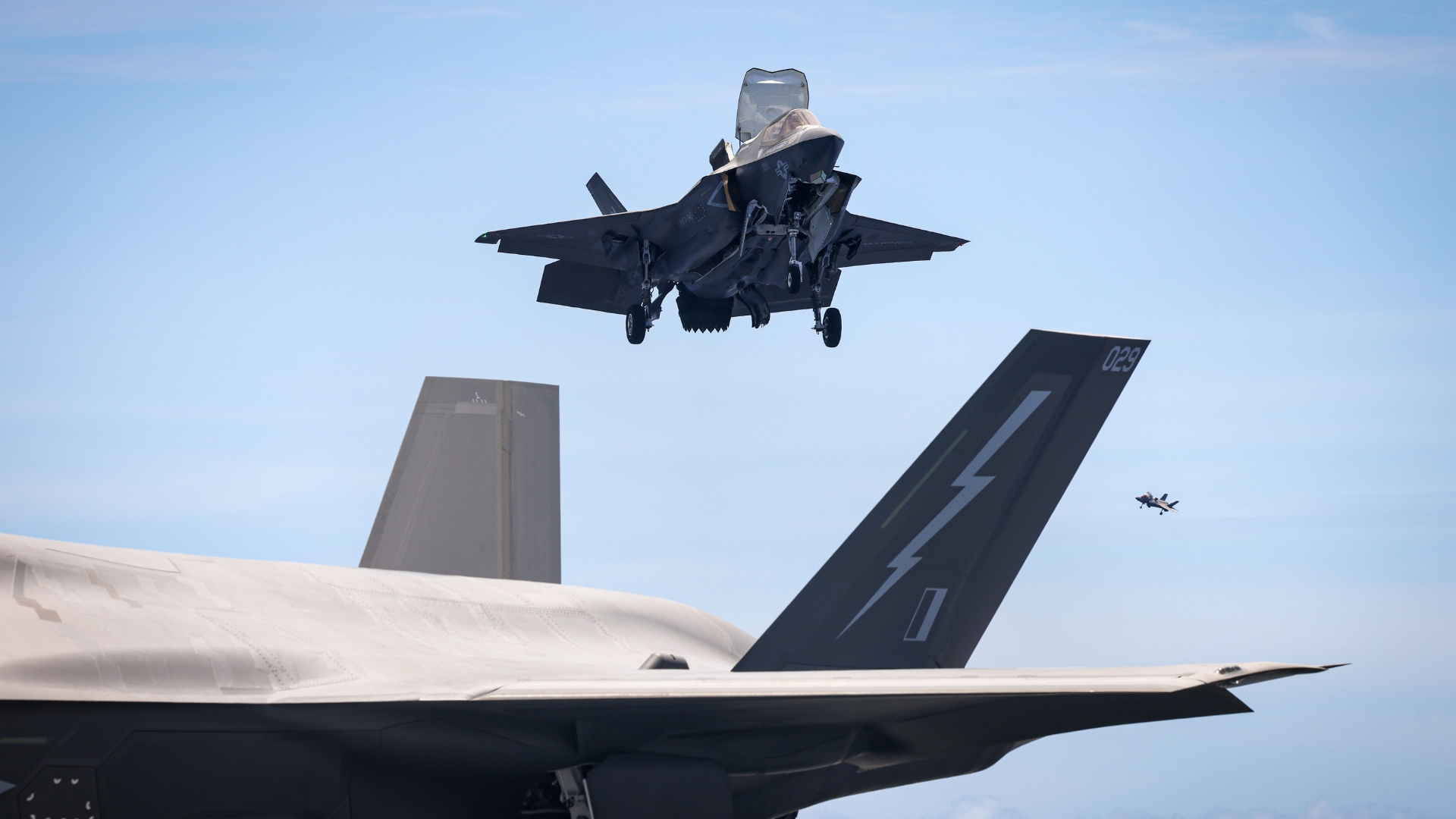
What the F-35 offers that 4th gen cannot
“In a legacy fighter you’re constantly juggling separate sensors, datalinks and pods, you’re piecing together a jigsaw in the cockpit. With the F-35, the jet does that fusion work. It gives me a clean, battle-ready picture in real time. That’s not a small step forward; it’s a completely different way of fighting.” - Lightning pilot Squadron Leader Mike.
The F-35’s sensor fusion combines radar, infrared and electronic warfare inputs to highlight threats and opportunities. The result: faster decisions, sharper awareness and the ability to shape the fight rather than just react to it.
Why this matters now
Simply put, today’s operational environment is contested across every domain - air, sea, land, cyber and space. Adversaries are fielding advanced surface-to-air systems, long-range missiles and powerful electronic warfare tools. For UK pilots flying thousands of miles from home, survival isn’t enough, they need to dominate.
Here the F-35 stands apart. It’s not only stealthy and supersonic, it’s networked. It connects allies across the battlespace, enabling multi-domain operations where data is as decisive as firepower.
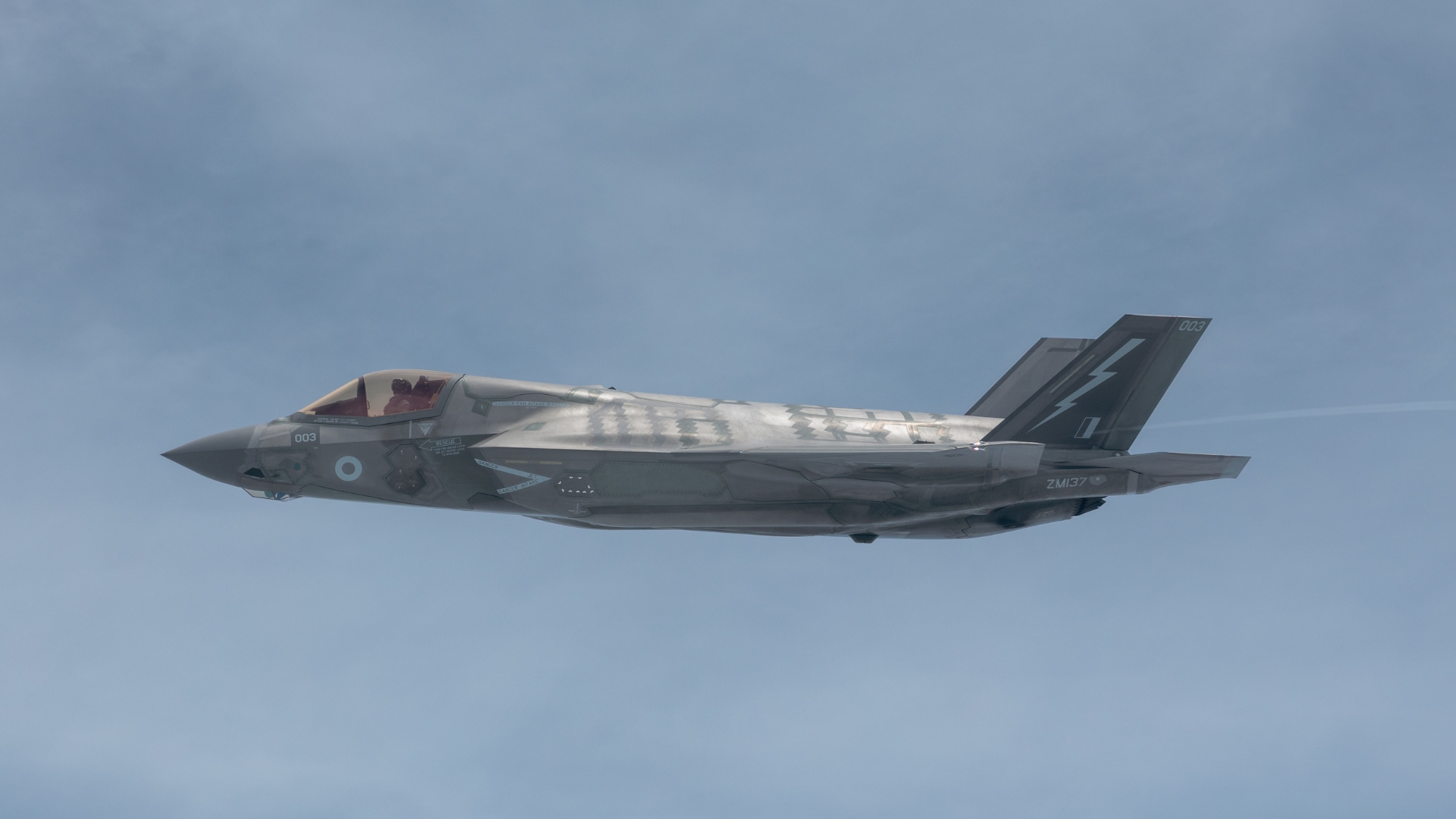
"The Helmet Sees It All - You Just React" - “My helmet isn’t just a visor,” It’s my window into the battlespace.” - Squadron Leader Mike.
The F-35’s Helmet Mounted Display System projects a 360° picture around the pilot, pulling in imagery from sensors built into the jet’s skin. It means they can literally “see through” the aircraft, tracking threats even while manoeuvring. Just as important, that data can be passed instantly to ships, ground units or other aircraft. "It’s not about me winning a fight in one jet, it’s about making the whole force stronger.”
During Highmast, the UK’s F-35Bs have flown alongside Typhoons, maritime patrol aircraft and allied fast jets across the region.
“I can hand off a target to a Typhoon or cue a Poseidon to a contact at sea, all in near real time,” - Squadron Leader Mike.
That interoperability has been tested during large-scale Indo-Pacific exercises such as Bersama Lima under the Five Power Defence Arrangements and through carrier operations with throughout the operation. The message is clear: the UK’s Lightning Force can slot seamlessly into a coalition fight, thousands of miles from home.
One of the F-35B’s most eye-catching strengths is its ability to land vertically.
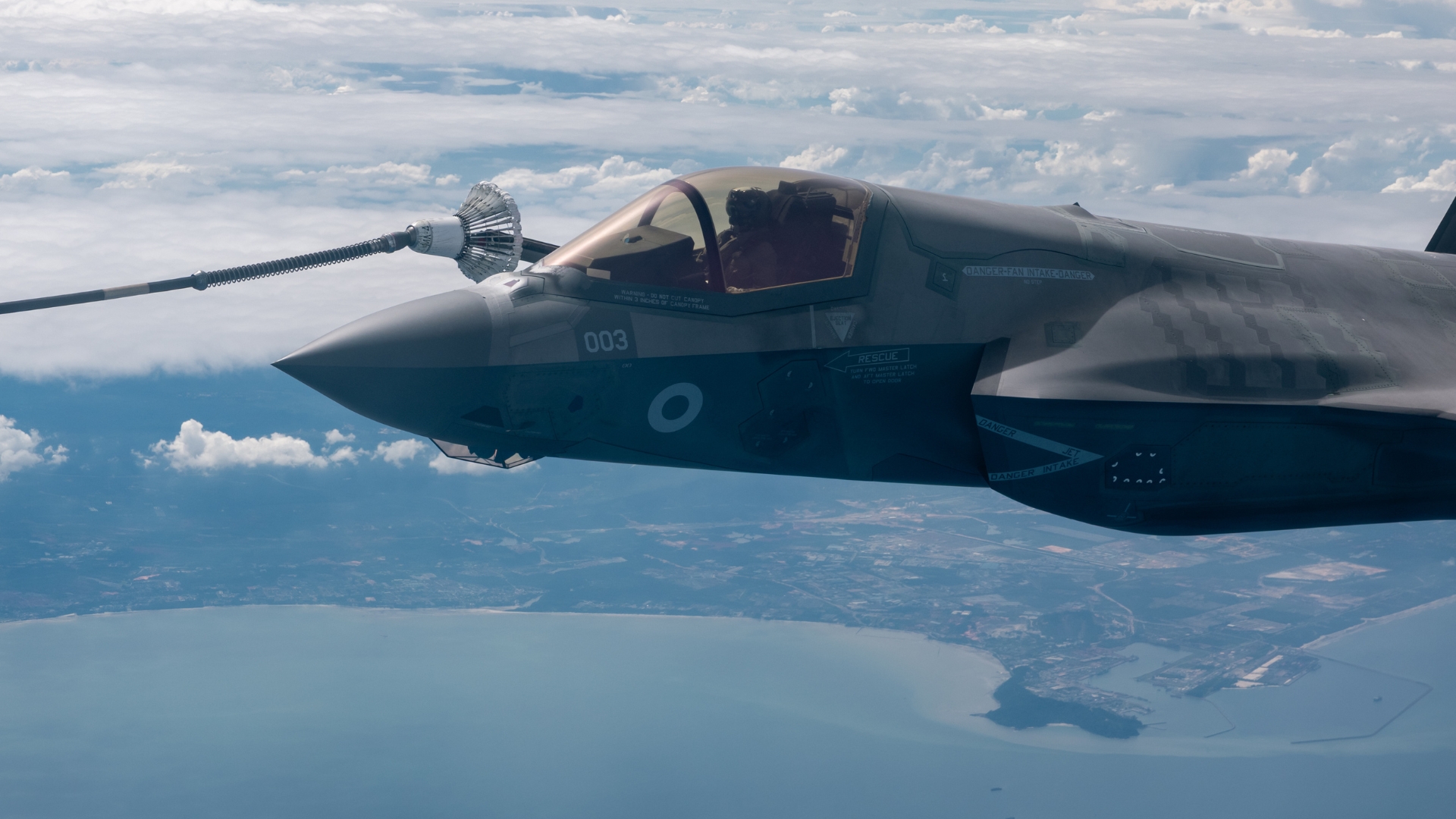
“Vertical landing in a stealth jet isn’t trivial,” the pilot admits. “It takes training and precision, but once mastered, it lets us go where others can’t, onto short strips, smaller carriers, even damaged airfields. That flexibility is priceless.” - Squadron Leader Mike.
The Rolls-Royce LiftFan, part of the award-winning propulsion system, gives the F-35B unmatched short takeoff and vertical landing capability. Led by Lockheed Martin, the F-35 program is a global effort with partners including BAE Systems, Northrop Grumman and RTX. UK industry contributes around 15% of each jet’s value, supporting thousands of jobs and strengthening defence sovereignty through domestic manufacturing and long-term support.
Continuing until December, Operation Highmast has more than 4,000 personnel deployed across the Royal Navy, Royal Air Force and British Army, and the Carrier Strike Group has already completed over 70 engagements with regional partners. Highlights include UK F-35Bs touching down on the Japanese carrier JS Kaga, a striking symbol of UK-Japan cooperation and joint exercises with Singapore, Malaysia and Australia.
For the Lightning pilots, the deployment is about more than milestones. It’s about proving that fifth-generation air power is here now, and operational.
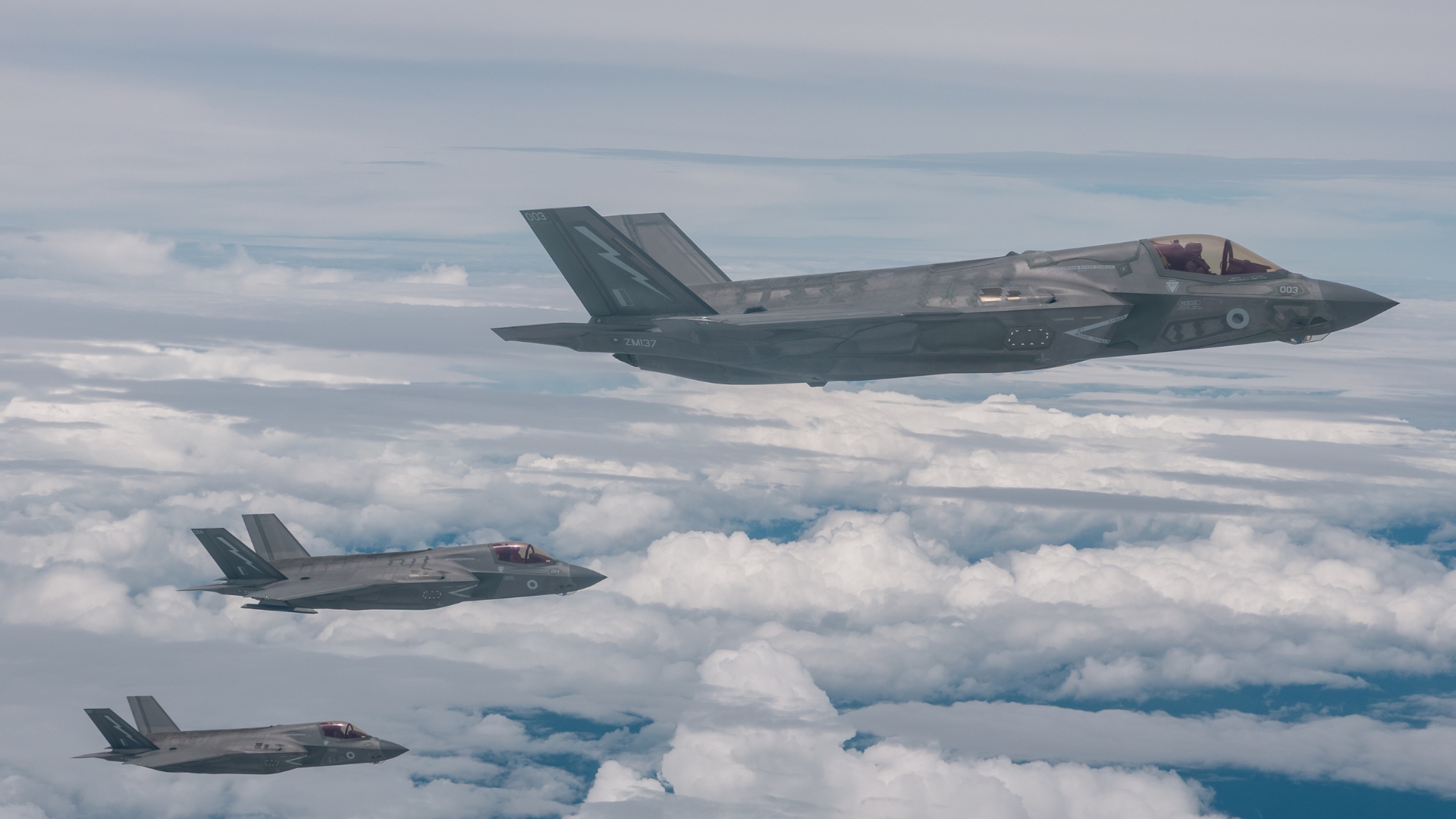
The F-35B brings stealth, sensor fusion, helmet technology, networking and Short Take-Off Vertical Landing (STOVL) flexibility together in a way no previous aircraft could. But its greatest strength may be less about the jet itself and more about what it enables: coalition pilots fighting as one, across vast distances in one of the most strategically contested regions on earth.
“Flying the F-35 isn’t just about flying a jet, it’s about commanding information. That’s what gives us the edge.” - Squadron Leader Mike.
.jpg)
